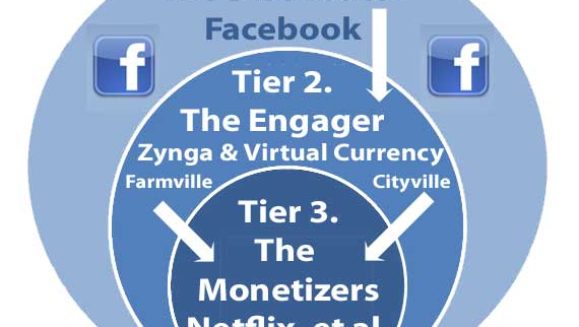I love how this business grows and changes, waking you up to ideas you don’t see because they are either under the radar, or just not cool enough for everyone to blog about…like the recent G+ bandwagon.
What I’ve discovered, late to the game, is a whole world of people buying and selling web sites. And this isn’t about buying domains, where you have to build a business around that name – highly lucrative, yet a different market.
After creating this video with 3 case studies from Flippa, done live (disclosure: I haven’t worked with Flippa nor know any of the sites mentioned, this is just a quick review), some folks asked me to break it down to the Essentials, which is what this blog post is about…
This article is a follow up to Key Insights to Buying and Selling Web Sites (the video is the same, the blog post is different), where I look at what factors I would evaluate when buying an existing business, or one that needs revamping. Much of this I learned in Zac Johnson’s book, Flip this Web Site, which I helped him develop in my coaching program – this is not an affiliate link, simply an introduction to a long time, very smart friend.
The 2 Essentials: Buy a Web Site
With Existing Assets and Revenue, or
Improve an Existing Business

When you buy a house in the real world, you look for location, location, location, number of square feet, bathrooms, and the ability to sell that house down the road for a profit…seems like that market is sort of dead, but it doesn’t take a genius to buy a house, it takes someone who researches, knows the details and flaws (every home, and every web site, has flaws), and is comfortable with the price and business to buy that property.
The same thing applies to buying a web site; if you buy an existing business with revenue, you need to evaluate that on revenue, consistent traffic locked in by search or loyalty, or both, and access to an audience.
If you want to fix up a site and leverage what you know to improve the business, you have to place a value on the time, money, and resources you will invest to turn that around. Just like adding a bathroom adds more value to a home than adding a closet, the cost involved in improving a web site must translate into increased revenue (or often, creating revenue), and increased value if you plan on selling.
Because with the Essentials I’m sharing here, the real key is your exit strategy. How long would you like to own this web site, and what would you like to do when you are done? Who would buy it?
From my first blog post: “Here I’m talking about buying a web site that exists, with assets like steady traffic, email lists, and sometimes revenue. The way Flippa lays it out for you is powerful, easy, and safer than anything I’ve seen before, including eBay.”
Here’s the 2 Essentials I see as important to buying and selling a web site:
Essentials 1. Buy a Successful Site Based On
Traffic, Search, Lists, and Revenue
When you buy a site, hopefully you are already experienced in the market you are targeting. In Zac’s book, he talks about buying a jewelry site, where he added his Internet marketing savvy and increased conversion.
Increasing conversion and improving the marketing increases revenue, and he was able to add this to a portfolio of sites generating revenue and traffic.
The same logic applies when you are looking to buy a web site that has traffic and revenue:
RecruitingBlogs.com is the example from the video, that reportedly sold on Flippa for $95,000. What amazed me is that this is a Ning site, which means the hosting and business is based on a low monthly fee, so buying the business means you are locked into Ning, or will have to move the site yourself off of Ning and replicate the various Ning tools like discussions, ads, Member Profiles (which builds your email list).
- RecruitingBlogs.com has a community of job recruiters, people involved in finding people jobs, and extensive networking. The jobs market online is lucrative, even in this down market, and these people are the gatekeepers. So the quality of the audience, if you are in that business of contacting recruiters, is high, and the advertising revenue is steady. People buy ads for these kinds of sites, because of the quality of the audience.
- Assets that excited me are a large, loyal community built over 4 years; talk about location, location, location! They also have an email list, steady monthly traffic, and steady monthly revenue.
- While scaling this business would be difficult unless you can integrate it into other efforts you are building in this market, you can see how the audience and revenue mix here makes it a powerful tool for growth.
- The key questions when buying must have been about scaling, can you add traffic and more users, or is this as big as it gets? Will this loyal audience stay with the site once it is purchased, as the new owner has to learn how the community operates.
- Is there something special the original owner added to the community? This is the problem with buying a guru’s site for example, where people are loyal to the person’s pseudo-celebrity, and not the site itself.
- While this site is based more on the activity of the audience, it’s smart to either keep the original owner around for 3-6 months to transition, and help you transition. The other choice is to simply replace that person; if so, what might the impact be to the audience?
- Finally, what’s your exit strategy? Will you be able to add more members and traffic, integrate it into your own “network” of jobs-related sites, and leverage this audience?
- Selling the site down the road means you understand that like you, people will buy this based on a multiple of Net Profits likely, or gross revenue, with traffic and the list as secondary measures. The list and community must also be responsive.
- Can you name 3 likely buyers for this site down the road? Why would they buy it from you?
- Just like a home, you have to measure the assets, the current and projected future value of those assets (after all, buying a dying community or old blog with little loyalty is not beneficial), and most of all, can you buy the business, run it, and increase the revenue and/or traffic? And in what time frame?
Essentials 2. Find a Fixer Upper – Technical or Marketing –
Where Your Skills Can Add Value
Fixing up a site is trickier, and like any remodeling job, you really want to think like a contractor, know your budget of money and time, and have a clear path to execution of your plan to improve this business.
Some businesses involve technical skills; in the video I share a web site that isn’t that expensive to buy, under $5,000, with traffic. Yet that traffic is compared to Tumblr.com, and written in its own, unique code.
If you are technically minded obviously you can learn this; AJAX has made this world fairly easy to navigate. Yet unless you see how the code is written and how it executes, you have to be wary of buying someone else’s problem.
For example, I’ve had sites that worked great with low traffic, but couldn’t scale because the infrastructure – both coding and where it was hosted – were lacking. Obviously both can be improved, but you have to measure the time spent here.
You can easily get into a project that soon drags on and on, and never takes the next step. Like a bad fixer upper, it can become a financial and time strain on your business, rather than being an asset.
Like any fixer upper, it’s buyer beware, and be aware of what you are really buying. The site I mentioned in the video has traffic, but the owner really sort of cloned the Tumblr idea.
Tumblr is hugely successful, and this site has over 100,000 people using it monthly, so at first glance that shows that the technology likely works. I would test the speed of the site, how fast it loads, and the recent activity…for a social site, recent activity is all that matters.
If possible, search on services like Compete.com and compare it to Tumblr. The problem with this freemium model for a buyer like me, is that Tumblr is the big player, has great tools, and owns the market. Why would someone choose your solution?
This is clearly where a combination of technical and marketing skills are needed, 2 key skills I feel are needed for any web site business. If you can build the brand and create a comfortable niche as the next best thing to Tumblr, go for it!
Just remember, freemium models gain users, yet how many are active and remain there day after day? What does the growth curve of the site look at? How many users are generating that traffic?
The best part of the site is that it has an iPhone application, which if good makes it a good deal. You get an app and a site with traffic for a low price, but it’s obvious that the seller is not making money with it.
So how will you monetize it? For any fixer upper, you are either buying the audience or revenue, or both!
That’s the key to building a business online; loyalty and monetization. Be sure to check out Flippa and see what’s up, this is not only smart, it’s a new trend in this growing business called the Internet!
What’s the biggest disruption in the Digital Ad and Marketing Industries?
The biggest disruption is the way people receive their information, social updates, etc….moving from a world driven by TV”s and PC’s broadcasting, to one of tablets and smart phones connecting people wherever they are, and plugging these into the bigger screens for richer, longer experiences of content. This disruption is starting to meld the previously […]
3 Essentials of Crowdfunding – Think and Grow Rich The Movies
When a close friend says, sorry you’re only 1% of the way to your crowdfunding goal after 2 weeks, it makes me smile. Many base success on first reactions, rather than realizing it’s a process to roll out anything, crowdfunding included. FINAL UPDATE: The crowdfunding campaign did not achieve it’s goal of $650,000. While the […]
Why Loving Your Customer is the Best Content Marketing Strategy – For You and The Audience
If you don’t love your customer, someone else will. The words and actions you engage visitors with can show your love, yet there is something even more important you can get them to do, to support and guide them. Let’s apply love to your content marketing strategy, because it’s less about the content today, and […]
The 3 Tiers of Social Media Partnerships and Virtual Currency – Zynga & Facebook
Social media is a new layer of business being ignored by many, because many of the social media experts come from a PR background, while many performance marketers sit on the sidelines waiting for someone to prove how it works so they can replicate it. Trying to understand the Zynga IPO, and how Facebook monetizes […]







